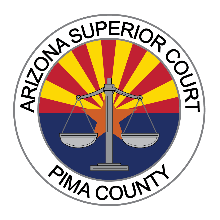Informal Family Law Trial
A new type of trial is now available for domestic relations cases in Pima County: an Informal Family Law Trial (IFLT). This type of trial differs from Traditional Trials in several ways. If you are interested in an IDRT trial, please read the information below and view
Family Law cases include divorce, separation, unmarried parent, and modification cases about child custody, parenting time, and child support. You may choose the type of trial that you think is best for your case.
What is an Informal Family Law Trial (IFLT)?
In an Informal Family Law Trial (IFLT), you and the other person speak directly to the judge about the issues that are disputed, such as child custody and dividing property or debts. A question and answer format is not used. Only the judge asks questions of each person. This happens even if you or the other person has a lawyer. Usually, other witnesses are not allowed to testify, unless the judge allows it. Expert witnesses such as a doctor, counselor, or custody evaluator can testify.
The Rules of Evidence do not apply in an IFLT. This means you can tell the judge everything that you think is important. You also can give the judge documents or papers you want the judge to review. The judge will decide the importance of what you and the other person say and the papers you each give to the judge.
In an IFLT, lawyers are only allowed to:
| |
|
| ● |
Say what the issues in the case are. |
| ● |
Respond when the judge asks if there are other areas as the person wants the courts to ask about. |
| ● |
Make short arguments about the law at the end of the case. |
| ● |
Question expert witnesses. |
| |
|
The IFLT is a voluntary process. In other words, you decide whether it is something you want to do. An IFLT will be used only if both people involved in the case agree to it. Both people must complete a form that says what type of trial they choose.
What is a Tradition Trial?
In a Traditional Trial, lawyers or people who represent themselves usually present information to the judge by asking questions of witnesses. Each side gets to ask follow-up questions of the other person and their witnesses. Generally, the judge asks few, if any, questions.
If one party asks, the Rules of Evidence apply. The Rules of Evidence place limits on the things a witness can talk about and the kind of documents that can be given to the judge to read. If you or the other person has a lawyer in a Traditional Trial, the lawyer will make opening statements and closing arguments to the judge and will ask questions of you, the other person, and other witnesses. If you represent yourself, you will be expected to follow the Rules of Evidence and you will be the one to make opening statements and closing arguments and to question witnesses.



